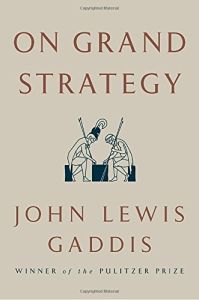Join getAbstract to access the summary!

Join getAbstract to access the summary!
John Lewis Gaddis
On Grand Strategy
Penguin Press, 2018
What's inside?
Are you a big-picture person or a detail-oriented one? This book makes a good case for being both.
Recommendation
Yale professor and Pulitzer winner John Lewis Gaddis sees his book’s title as referring to more than planning and fighting wars. It means connecting the dots, and understanding the big picture, while seeing details. He loads the text with illustrative, often playful, historical and cultural examples, with leaders who are both great and flawed. How well the book resonates with readers may vary. To some, it offers an inclusive theory of the world, with delightfully diverse examples. Others may feel that Gaddis’s focus on history and analogies blurs his overarching concepts. However, if you’re interested in clarifying different approaches to strategy, you’ve come to the right place.
Summary
About the Author
Pulitzer Prize and National Humanities Medal winner John Lewis Gaddis is Yale University’s Robert A. Lovett Professor of Military and Naval History, author of 10 previous books and founding director of the Brady-Johnson Program in Grand Strategy.

















Comment on this summary